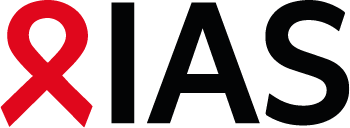Share Abstract
High-risk sexual behavior among undergraduate college students in southern Brazil
Abstract Content:
Background: High-risk sexual behaviors continue to be one of the major factors contributing to the HIV epidemic. Disclosure of HIV serostatus can expand awareness of risk to partners, increase opportunities for risk reduction, enable couples to make informed reproductive health choices and improve access to care and treatment programs. Our objective was to investigate the knowledge, attitudes and beliefs of college students regarding HIV disclosure and sexual risk behavior in order to develop appropriate strategies to encourage healthier and safer sex practices.
Methods: 645 undergraduate students were invited to participate in a cross-sectional anonymous survey at Universidade de Caxias do Sul, Caxias do Sul, Brazil from November to December, 2004. A questionnaire comprised of single and multiple choice questions was administered after proper introduction and formal consent to collect information on demographic data, knowledge of HIV transmission, sexual behavior in real and hypothetical situations, prevention and testing behavior. Privacy was assured to respondents.
Results: 635 students participated. 235 (37%) indicated that they would disclose HIV status to their sexual partner, if they were HIV positive but, 257 (40.5%) would not disclose their HIV status and 143 (22.5%) were not sure. Among the 235 that would inform their partner, 72.2% were women and 68.9% were single. Of the 257 that would not disclose their status, 143 (55,6%) reported that they would not use condoms in casual relationships.
Conclusions: A large proportion of undergraduate students reported that they would not disclose their HIV status nor use condoms in casual relationships. The high potential for spread of HIV among this population emphasizes the failure of current prevention programs in reaching young adults and the need for expanding HIV prevention strategies to include specific programs for youths at all educational levels.
(Supported by NIH/Fogarty 043 TW00017 grant to Dr. Gail Shor-Posner.)
Methods: 645 undergraduate students were invited to participate in a cross-sectional anonymous survey at Universidade de Caxias do Sul, Caxias do Sul, Brazil from November to December, 2004. A questionnaire comprised of single and multiple choice questions was administered after proper introduction and formal consent to collect information on demographic data, knowledge of HIV transmission, sexual behavior in real and hypothetical situations, prevention and testing behavior. Privacy was assured to respondents.
Results: 635 students participated. 235 (37%) indicated that they would disclose HIV status to their sexual partner, if they were HIV positive but, 257 (40.5%) would not disclose their HIV status and 143 (22.5%) were not sure. Among the 235 that would inform their partner, 72.2% were women and 68.9% were single. Of the 257 that would not disclose their status, 143 (55,6%) reported that they would not use condoms in casual relationships.
Conclusions: A large proportion of undergraduate students reported that they would not disclose their HIV status nor use condoms in casual relationships. The high potential for spread of HIV among this population emphasizes the failure of current prevention programs in reaching young adults and the need for expanding HIV prevention strategies to include specific programs for youths at all educational levels.
(Supported by NIH/Fogarty 043 TW00017 grant to Dr. Gail Shor-Posner.)
